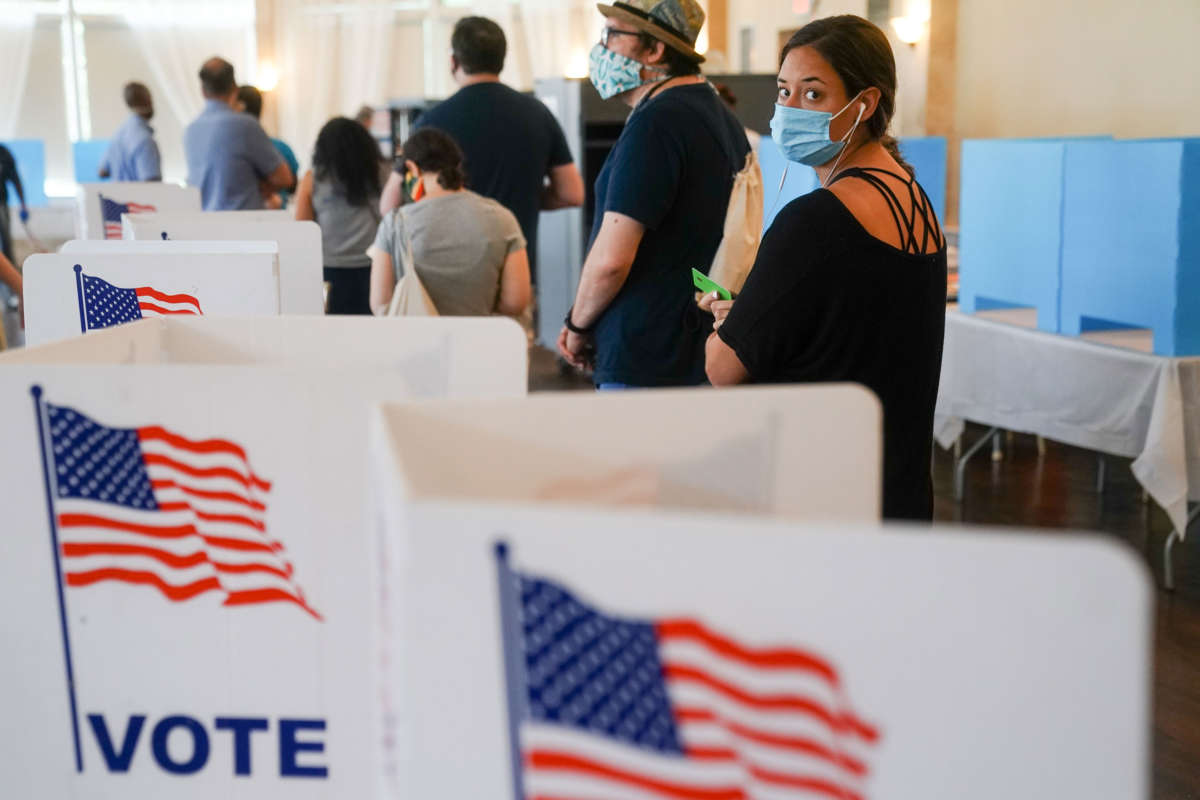An independent investigation looking into the removal of citizen names from voter registration rolls in Georgia last year found that the vast majority of those names were wrongfully purged.
The ACLU of Georgia, working with the Palast Investigative Fund, reviewed more than 313,000 names that were purged from voter registration rolls in late 2019 on the basis that the state believed those individuals had moved away from their residences. Of those purged names, the independent investigation determined that nearly 200,000 — or over 63 percent — were removed improperly, as the registered voters were still residing at those addresses.
Georgia removes “inactive” voters if they do not vote during a three-year time period — or, in other words, fail to vote at least once within two general election periods. A person who didn’t vote in 2016 or 2018, for example, would risk not being registered in 2020 unless they took additional steps to ensure that they would still be included on the rolls.
According to the report itself, the number of names improperly removed is likely higher than what the investigation uncovered. The error rate cited by the ACLU of Georgia and the Palast Investigative Fund doesn’t include “tens of thousands of other citizens who have moved within their neighborhood, some within their buildings,” the report said, noting that the National Voter Registration Act does not allow for removing voters from registration rolls if they continue to reside in the same voting jurisdiction.
This is not the first time that names have been wrongfully removed from Georgia’s voter registration rolls on grounds that the state assumed those individuals no longer resided where they had registered. Similar findings were made in 2017, when then-Secretary of State Brian Kemp, a Republican, purged more than half a million names from voter rolls ahead of a gubernatorial election that took place the following year, and in which he won the race against Democratic candidate Stacey Abrams.
Research into that purge of names found that more than 340,000 of those who were removed still lived at the addresses they had registered.
Many maintain that purges such as these (in Georgia and beyond) are used by Republicans in order to disenfranchise citizens who are more likely to lean Democratic in their voting behaviors. Indeed, many believe that purges before the 2018 gubernatorial race in the state likely secured Kemp’s victory in his race against Abrams, which he won by a narrow margin of just 55,000 votes.
Abrams herself has refused to concede the highly contested race as a loss to this day, in part because thousands of voters, likely Democratic-leaning in her view, were prohibited from taking part in the election that year.
“I believe we have reached a place where those who share my values actually outnumber those who share the values of my opponent,” Abrams said in an interview last year. “And that wasn’t made manifest because of [Kemp’s] structural racism and how he diminished people’s ability to vote” as secretary of state.
Join us in defending the truth before it’s too late
The future of independent journalism is uncertain, and the consequences of losing it are too grave to ignore. To ensure Truthout remains safe, strong, and free, we need to raise $24,000 by the end of today. Every dollar raised goes directly toward the costs of producing news you can trust.
Please give what you can — because by supporting us with a tax-deductible donation, you’re not just preserving a source of news, you’re helping to safeguard what’s left of our democracy.
